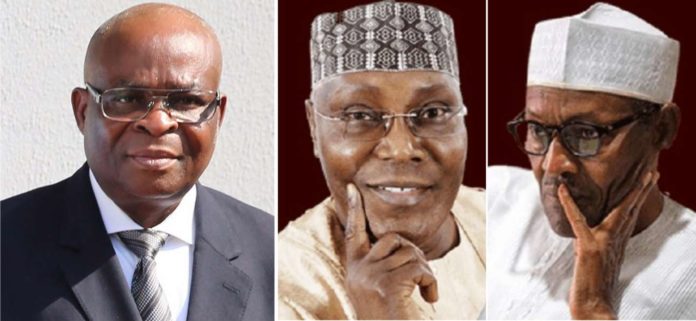2019 in Retrospect: Onnoghen’s Travails; Presidential Election Petition and Other Poll-Related Cases
Onnoghen’s travails
The judiciary started 2019 on a stormy note with an unprecedented institution of charges against a Chief of Justice of Nigeria in January.
The Anti-Corruption and Research-Based Data Initiative, and its Executive Director, Mr. Dennis Aghanya, had sent a petition against the then CJN, Justice Walter Onnoghen, to the Code of Conduct Bureau on January 9, 2019.
The petitioners accused Justice Onnoghen of violating the Code of Conduct for Public Officers by failing to declare some bank accounts in which huge amounts of money in local and foreign currencies were housed.
Acting through the CCB, the Federal Government immediately commenced investigation into the allegations and by January 11, it had filed charges against the sitting CJN before the Code of Conduct Tribunal.
It filed against Onnoghen six counts, including failure to declare his assets between June 2005 and December 14, 2016.
The other five counts bordered on allegation that Onnoghen made false declaration of his assets on December 14, 2016 by allegedly omitting to declare his domiciliary dollar, euro and pound sterling accounts as well as his two naira accounts, all domiciled in Standard Chartered Bank (Nig.) Ltd.
On January 25, the President, Major General Muhammadu Buhari (retd.), acting on an order of the CCT, suspended Onnoghen and swore in the next most senior Justice of the Supreme Court, Justice Tanko Muhammad, as acting CJN.
Buhari’s action suspending the CJN attracted criticism from within and outside the country.
After the suspension, the trial proceeded and on realising that the trial would likely go against him, Onnoghen tendered his resignation letter on April 4, 2019.
But despite that, the trial continued and ended in the conviction of the then CJN on April 18, 2019 by the tribunal.
As punishments for the offences, the tribunal ordered Onnoghen’s removal from office, ordered the forfeiture of the bank accounts he failed to declare to the Federal Government and barred him from holding any public office for 10 years.
The Onnoghen saga remains a reference point for many Nigerians and stakeholders in the legal system, including the Nigerian Bar Association, which believes that the executive arm of government breached due process in handling Onnoghen’s case and thereby stripped the Nigerian judiciary of its independence.
As Nigerians welcomed 2020 on Wednesday, the NBA held onto its view that the treatment meted out to Onnoghen was a symbolic erosion of the judiciary’s independence and by extension the rule of law in the country in the just-ended 2019.
Justice Tanko Muhammad, who was then the second most senior Justice of the Supreme Court, took over as the acting CJN, following the suspension of Onnoghen in January.
With the renewal of his acting tenure for another three months in April, Justice Muhammad remained as the acting CJN until the NJC recommended him to Buhari for appointment as the substantive CJN in June.
On July 24, Buhari inaugurated him as the 16th indigenous CJN and he is expected to remain in office till December 31, 2023, when he clocks the mandatory retirement age of 70.
Presidential election petition and other poll-related cases
As an election year, 2019 witnessed “the mother of legal battles” which occured between the Peoples Democratic Party’s presidential candidate, Alhaji Atiku Abubakar, and the President, Major General Buhari (retd.), at the Presidential Election Petitions Tribunal.
Although there were originally four election petitions filed to challenge the outcome of the 2019 presidential election, only the one filed by Atiku and the PDP to challenge the victory of Buhari and his All Progressives Congress was taken seriously.
The Supreme Court on November 15, 2019 laid to rest the dispute concerning the February 23 presidential election, but the some of the issues thrown up in the case would remain indelible in the memory of many Nigerians.
Firstly, the PDP and Atiku wrote a petition challenging the inclusion of the President of the Court of Appeal, Justice Zainab Bulkachuwa, in the five-man panel to hear the petition against Buhari.
The petitioners accused Bulkachuwa, who had appointed herself as the chairman of the panel, of likelihood of bias on the grounds that her husband, Adamu Bulkachuwa, was then a senator-elect on the platform of the APC, on whose platform Buhari ran for and won the February 23 presidential election. The PDP further complained that Bulkachuwa’s son, Aliyu Abubakar, was also an APC governorship aspirant in Gombe State.
The tribunal on May 15 directed the petitioners to file a formal application requesting Bulkachuwa’s disqualification from further participating in the panel.
On May 22, shortly after hearing the application, Justice Bulkachuwa voluntarily withdrew from the panel.
Although the five-man panel of the tribunal, in a unanimous ruling dismissed the application, Justice Bulkachuwa said she was withdrawing for “personal reasons”.
Justice Olabisi Ige, who read the lead ruling of the panel, held that the relationship between Justice Bulkachuwa and her husband, Adamu Bulkachuwa, who was a senator-elect, and her son Aliyu Abubakar, a governorship aspirant, both on the platform of the APC, was not weighty enough to infer that she would be biased in her handling of the proceedings of the panel.
Justice Ige also ruled that no inference of likelihood of bias could be inferred from the speech delivered by Justice Bulkachuwa at the inaugural sitting of the tribunal on May 8 that she had pre-judged the petitioners’ petition.
All the members of the panel, including Justice Bulkachuwa, agreed with the lead ruling.
Despite that, however, Justice Bulkachuwa said, “I am recusing myself from the panel for personal reasons”.
She however expressed joy that the matter had been settled “based on facts and the law” so that “another female judge will no longer have to face what I have faced.”
On June 10, Justice Mohammed Garba replaced Justice Bulkachuwa on the panel.
Justice Garba led the panel, which conducted the pre-hearing session and the substantive trial, which eventually ended in a unanimous judgment delivered by the five-man panel on October 30.
In resolving the topical issues thrown up in the case, the tribunal dismissed the claim by the petitioners that Buhari was not educationally qualified to contest the election and that the Independent National Electoral Commission had a server in which it allegedly stored the authentic results of the election which showed that the PDP and Atiku won the poll.
Deji Sasegbon’s Latest Dictionary: Place your order now. Call:08076095047, 07036688678, 08035629991
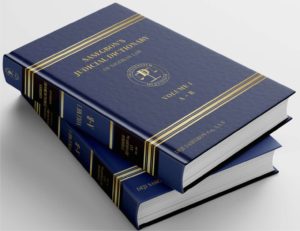
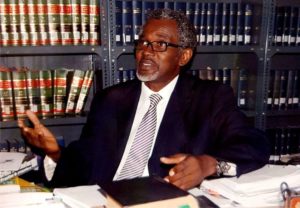
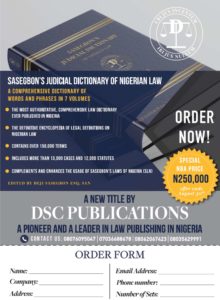
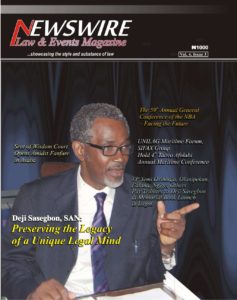
Newswire, we present the world of law and the issues that engage them. This edition is yet again, ‘Mind-blowing’. Go get your copy(ies) Now!


Do you need to be heard? Or your articles published? Send your views, messages, articles or press release to: newswiremagazine@yahoo.co.uk >>> We can cover your (LAW) events at the first Call: 08039218044, 08024004726
-Advertisement-
Grab our latest Magazine, "Chief Wole Olanipekun, CFR, SAN, A man of wide horizons and deep intentions". Get your order fast and stress free.
For more details about Newswire Law&Events Magazine, kindly reach out to us on 08039218044, 09070309355. Email: newswiremagazine@yahoo.co.uk. You will be glad you did


